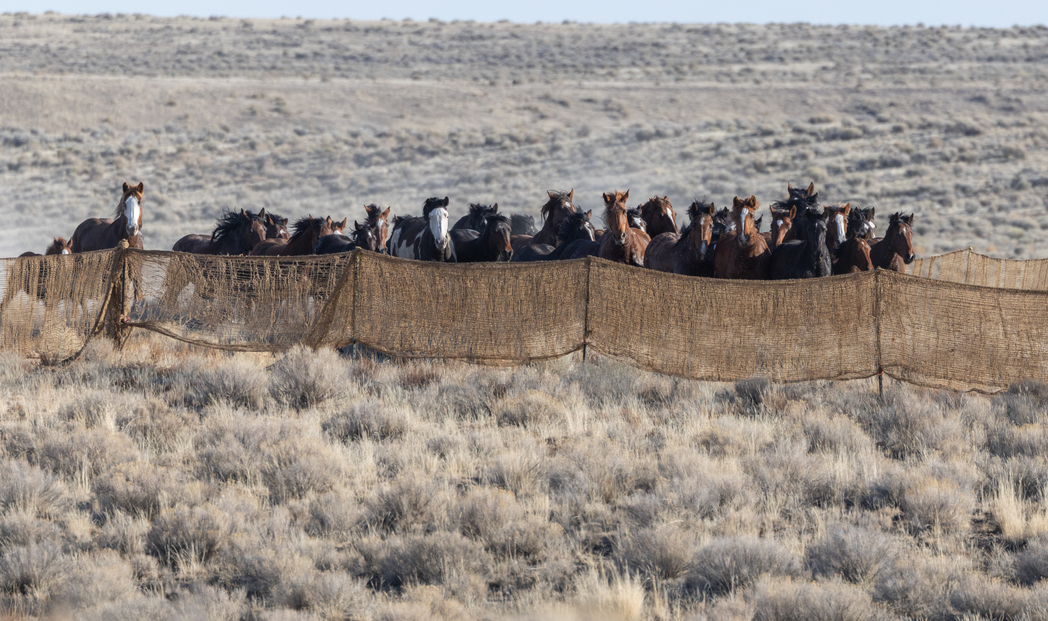

Understanding the Role of Wild Horses in Their Ecosystems
Wild horses play a significant role in shaping the ecosystems they inhabit. Explore the ecological impacts of wild horses and discover how AWHC is working to balance their presence with the health of their habitats.
.jpeg)




Learn about the benefits and challenges that wild horses bring to their ecosystems.
Wild horses and burros contribute to vegetation management through their grazing habits. They help maintain grassland ecosystems by preventing overgrowth and promoting plant diversity. Additionally, large grazing herbivores can reduce fire spread and intensity by reducing fuel biomass by consuming vegetation. Horses and burros are especially useful as they are hindgut fermenters (as opposed to livestock) so they are more likely to consume dry and low-nutrient vegetation, like cheatgrass, that can be major drivers of wildfires.
The movement of wild horses across the landscape can help aerate the soil and promote nutrient cycling. By consuming slow-to-decompose vegetation, large herbivores can increase ecosystem metabolism and thus increase rates of carbon sequestration.
Wild horses rely on water sources for survival, and their use of these resources can influence water availability and quality. Wild equids have been shown to increase water availability in desert ecosystems, which could increase resistance to aridification.
Wild horses share their habitats with other wildlife species, which can lead to complex interactions. They can create habitats for other species by maintaining open spaces and water sources, and can be a critical component of rewilding. Rewilding (re-establishing functionally diverse populations of large-bodied animals, including both native species and replacements for extinct species or forms) is increasingly considered a central and critical component to global restoration efforts.
Your involvement is key to safeguarding wild horses and burros.
Your contribution helps fund our advocacy, litigation, and protection initiatives.
Urge your representatives to support policies that help protect wild horses and burros.
Join our team of dedicated volunteers and make a direct impact.
Discover how AWHC is leading efforts to study and manage the ecological impacts of wild horses.
AWHC is involved in habitat restoration projects that aim to mitigate the negative impacts of wild horses and promote ecological balance. These projects include reseeding native plants, improving water sources, and managing grazing areas.
AWHC collaborates with ecologists, wildlife biologists, and land managers to develop and implement effective management strategies. These partnerships enhance our ability to address the ecological impacts of wild horses comprehensively.
AWHC supports and conducts research to understand the ecological impacts of wild horses. This research helps inform management practices that balance the needs of wild horses with the health of their habitats.